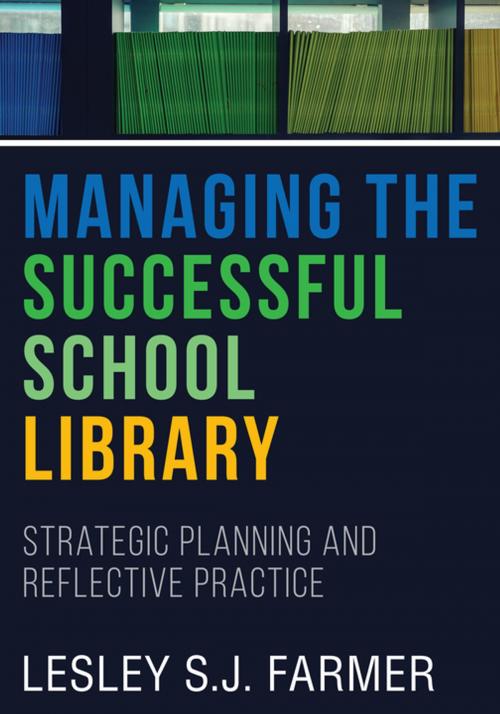Managing the Successful School Library
Strategic Planning and Reflective Practice
Nonfiction, Reference & Language, Language Arts, Library & Information Services, Reference| Author: | Lesley S. J. Farmer | ISBN: | 9780838915165 |
| Publisher: | American Library Association | Publication: | December 16, 2016 |
| Imprint: | ALA Neal-Schuman | Language: | English |
| Author: | Lesley S. J. Farmer |
| ISBN: | 9780838915165 |
| Publisher: | American Library Association |
| Publication: | December 16, 2016 |
| Imprint: | ALA Neal-Schuman |
| Language: | English |
To ensure their libraries survive and thrive, school library managers need to be both responsive and proactive. Looking past the day-to-day operations of a school library, Farmer’s book serves as a reality check: school libraries must align with school mission statements and policies, while simultaneously negotiating for proper budgets and resources alongside other departments. It’s a daunting prospect, but Farmer demonstrates how it can be done with the proper attention and systematic planning. Taking a deeper, more professional look at management that applies theories and principles to real-world situations, this book introduces the concept of school library programs and provides an overview of school library program management; examines professional and legislated standards for school libraries, and discusses the part a manager plays in meeting them; links management with leadership, differentiating the two, and showing how the school librarian can carry out both roles; helps readers assess their own skills, knowledge, and dispositions in order to set short-term and long-term goals; explains how to manage resources and learning environments to meet the needs of teachers, administrators, parents, and other stakeholders; offers guidance for developing and working with budgets, obtaining additional funding, and using collaboration to support the school library program; provides concrete advice on hiring, training, supervising, assessment, and recognizing library workers and other library team members; and includes tools for communicating effectively and getting the message across. More than just a compendium of management theories, this book provides much food for thought that will help readers gain important insights into their own roles as school library managers and leaders.
To ensure their libraries survive and thrive, school library managers need to be both responsive and proactive. Looking past the day-to-day operations of a school library, Farmer’s book serves as a reality check: school libraries must align with school mission statements and policies, while simultaneously negotiating for proper budgets and resources alongside other departments. It’s a daunting prospect, but Farmer demonstrates how it can be done with the proper attention and systematic planning. Taking a deeper, more professional look at management that applies theories and principles to real-world situations, this book introduces the concept of school library programs and provides an overview of school library program management; examines professional and legislated standards for school libraries, and discusses the part a manager plays in meeting them; links management with leadership, differentiating the two, and showing how the school librarian can carry out both roles; helps readers assess their own skills, knowledge, and dispositions in order to set short-term and long-term goals; explains how to manage resources and learning environments to meet the needs of teachers, administrators, parents, and other stakeholders; offers guidance for developing and working with budgets, obtaining additional funding, and using collaboration to support the school library program; provides concrete advice on hiring, training, supervising, assessment, and recognizing library workers and other library team members; and includes tools for communicating effectively and getting the message across. More than just a compendium of management theories, this book provides much food for thought that will help readers gain important insights into their own roles as school library managers and leaders.















